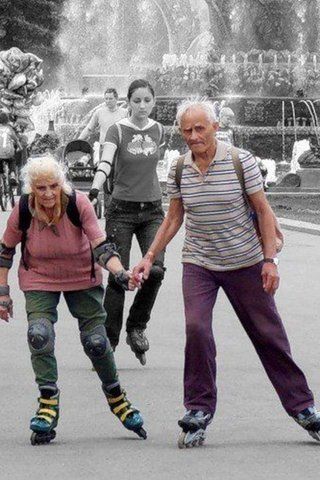It’s an interesting time. It seems that every year you get older by a year, and by the standards and theory of experts, every year you get younger by 2.5 months. And the further, the more.
For those who are now, say, 30 years old, having reached 50, the age of negligible aging will be 6 months. The term was coined and approved back in 1990. According to the data, the concept was first introduced by Caleb Finch. At the same time, a number of authors use the term “insignificant aging”, but this term, as well as “negligible aging”, are variants of the translation of the English term introduced by Finch. “negligible senescence”.
Term negligible aging stands for aging ratewhich is difficult to statistically distinguish from zero on a given sample scale, as well as “non-aging” – a zero correlation between age and the probability of death.
Negligible aging as a phenomenon today is one of strongest scientific arguments for the concentration of human efforts in the struggle for a radical extension of human life and victory over human aging.
In 2001, K. E. Finch and S. N. Osted proposed minimum criteria for classifying a particular species as “negligible aging”: no increase in mortality and morbidity with age after puberty, a decrease in the rate of reproduction, and a number of physiological indicators.
Such creatures must age so slowly that it would be almost impossible to record any age-related changes.
Some scientists, based on statistical data (the first of which appeared back in 1939), came to the conclusion that the phenomenon of negligible aging is observed in people who have lived to about 90-100 years.
But enough theory, back to our time. We, the current 50- and 60-year-old people, are a generation of pioneers. Our parents grew up and grew old much earlier. Remember, most likely your parents (let’s take, for example, residents of the USSR) retired at the age of 50 women, and 55 years – men. That is, they became old pensioners and led an appropriate lifestyle, called the term “survival period.”
In that era, there were clubs “for those over 30”. That is, a young woman who had not married by this age (and a young man too) were equated, as it were, with the “second grade”, and they, poor fellows, were pitied by 50-year-old old women on benches at the entrances.
Today, young people are 35-year-olds who lead an appropriately active lifestyle and do not yet feel “mature” (like their parents at the same age). In Greece, at this age, young people are just beginning to think about marriage and starting a family.
But the greatest commander Alexander of Macedon, positioned as “a man in the prime of life”, leading the troops, was only … 20 with a little! By the way, he completed his life at the age of 32.
But what I would especially like to emphasize is that we are the first generation of “young NOT old people” who will have to decide how to spend their time in accordance with the “surging spring”. After all, today at 50 no one considers an old man. Probably at 60 too.
In the world there are many opportunities for people of this age, how to “enjoy life.” People whose children have matured and “flew out of the nest” can actively, productively and happily revel in life: if you want, you can work, or you can return to the hobbies of youth – re-learn a hobby thrown into the closet, travel, conquer peaks. But certainly not to “sit on the mound”, mourning the bygone youth.
Reflections on age of negligible aging from 1.59 minutes.
Learn more about how to live after 50 is much better than before.







More Stories
Travel Off Path named 7 popular tourist destinations where tourists are no longer welcome. Greece… among them
Robot Sophia commented on her fall from the steps in Thessaloniki
Impressive "missile war" in Vrontado on Chios